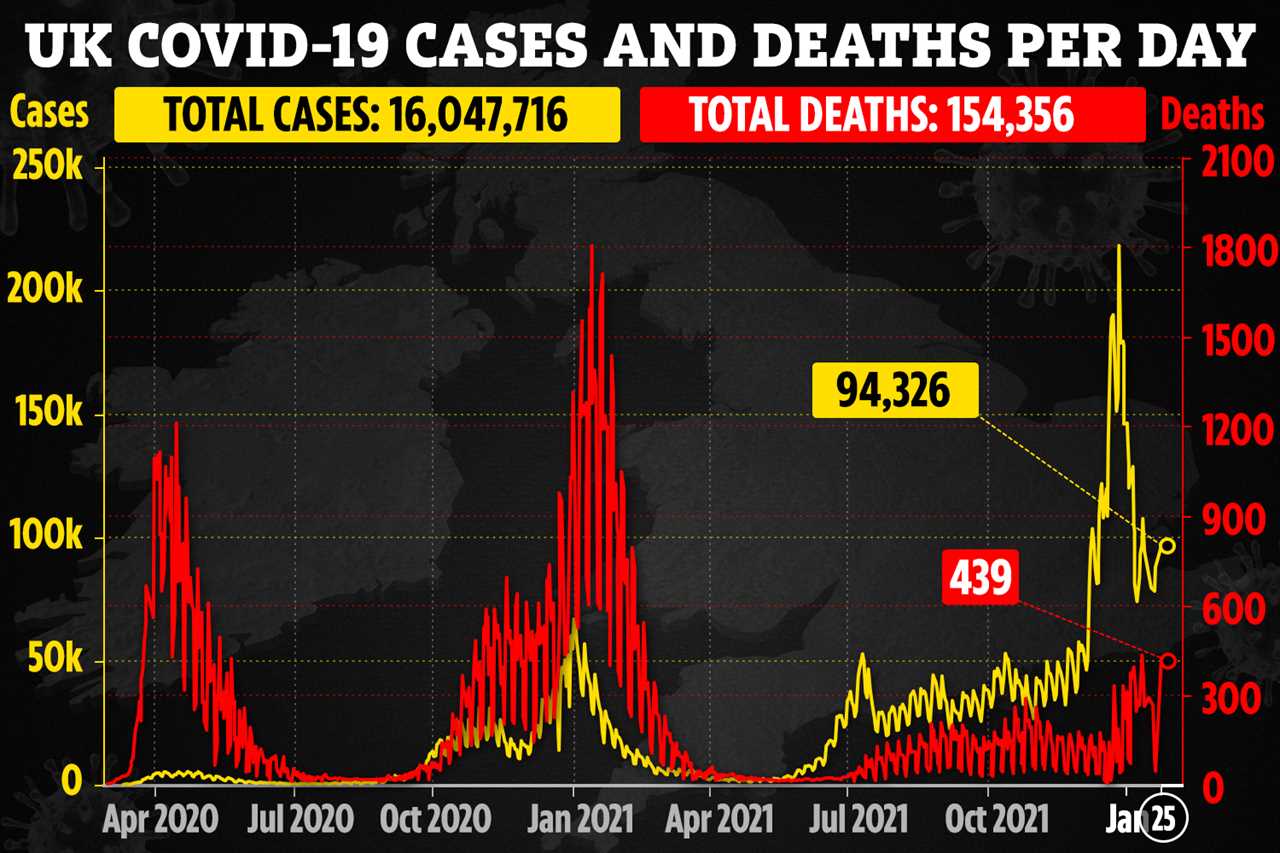CORONAVIRUS infections have dropped by 21 per cent in the last fortnight, new data has revealed.
A further 94,326 Brits tested positive today, a drop from 120,821 infections on January 11.


The update on infections today means a total of 16,047,716 people have now caught the bug in Britain.
Sadly, a further 439 deaths within 28 days of a positive test were recorded today, that’s up on yesterday’s death rate of 56 deaths, with Monday’s data always lagging behind due to the weekend.
The fall in infections from two weeks ago marks another positive sign the country is over the peak of the Omicron wave.
Infections are also down steeply today compared to Christmas eve, when 122,186 people tested positive – meaning they would have to miss out on Christmas with their families.
While Covid won’t be a mild illness for everyone, most people who have had the variant say it’s ‘just like a cold’.
A string of hugely positive studies show Omicron is milder than other strains in the vaccinated, with the first official UK report revealing the risk of hospitalisation is 50 to 70 per cent lower than with Delta.
Covid booster jabs protect against Omicron and offer the best chance to get through the pandemic, health officials have repeatedly said.
Infection rates have plummeted across the country but there are some areas that have seen a rise in cases in the last week.
In Northern Ireland a cluster of infections have emerged as the government there has opted to reopen night clubs later this week.
Newry, Mourne & Down in Northern Ireland has the highest rate in the UK, with 3,451 new cases in the seven days to January 20 – the equivalent of 1,899.6 per 100,000 people.
This is up from a rate of 1,411.9 for the seven days to January 13.
Experts at the World Health Organisation have now said that there are actually four strains of Omicron circulating.
The mutant variant has developed a number of separate lineages since emerging late last year.
This is not a surprise, it is a common pattern for virus strains – with Delta having split into more than 200 sub-variants before Omicron overtook it.
Most of the strains are so similar to the original they make no extra impact on severity or immunity.
It comes after it was revealed that thousands of Brits could have access to life-saving coronavirus drugs at home.
Vaccines have been key when it comes to beating coronavirus, but antivirals also have a huge role to play.
Brits over the age of 50 have been urged to sign up to the anti-viral study so that the life-saving medications can be rolled out faster.
Antivirals help protect the most vulnerable in society from having to go into hospital and the drive for Brits to take part in the study has been backed by charities such as Kidney Care UK, Cystic Fibrosis Trust, Diabetes UK and the British Liver Trust.






